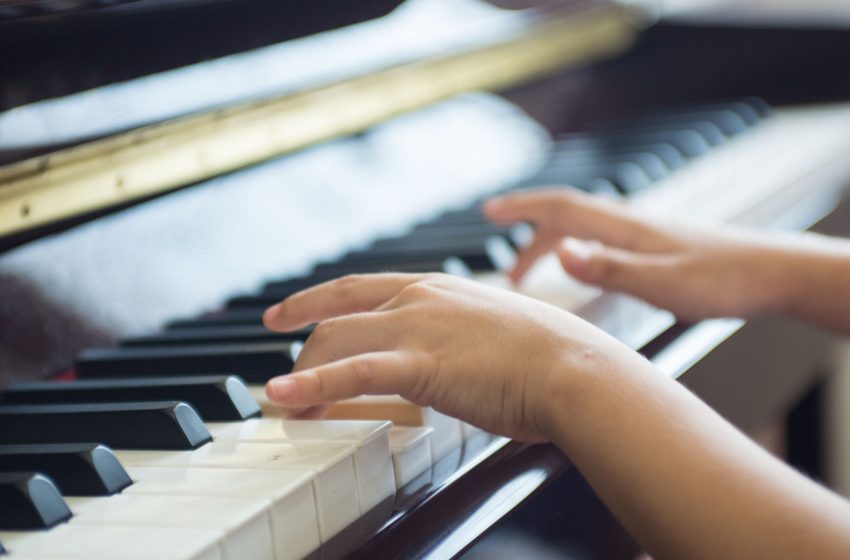The Impact of Music Education on Academic Performance in Children

Music education is more than just learning to play an instrument or read sheet music. It has profound and far-reaching impacts on a child’s overall development, including their academic performance. With the advent of Online Music Classes and the expertise of Music teachers in Mumbai and other urban centers, access to quality music education has never been more attainable. Let’s explore how music education influences academic performance in children.
Cognitive Development and Academic Performance
- Enhanced Memory and Concentration: Learning music requires children to memorize notes, rhythms, and lyrics, which strengthens their memory capacity. This improved memory capability extends to other academic subjects, enhancing their ability to retain information and concentrate during classes.
- Improved Mathematical Skills: Music education often involves understanding rhythms, patterns, and scales, which are intrinsically linked to mathematical concepts. Studies have shown that children who participate in music lessons score higher in math tests. The rhythmic patterns and musical structures help in developing a better understanding of fractions, proportions, and problem-solving skills.
- Language and Literacy Skills: Music and language processing share common neural pathways. Engaging in music education can enhance a child’s phonological awareness, which is crucial for reading and writing. Children who take music lessons often exhibit better vocabulary, reading comprehension, and verbal memory.
Social and Emotional Development
- Teamwork and Collaboration: Participating in group music activities, such as bands, choirs, or orchestras, teaches children the importance of working together. This collaborative effort fosters a sense of teamwork and improves social skills, which are beneficial in group academic projects and classroom interactions.
- Confidence and Self-Esteem: Performing music in front of an audience, whether in a recital or a casual setting, helps build a child’s confidence. This increased self-esteem can translate into a more positive attitude towards academic challenges and a willingness to participate actively in classroom discussions.
- Emotional Regulation: Music education provides an outlet for emotional expression and helps children develop better emotional regulation skills. Managing performance anxiety and channeling emotions through music can lead to a more balanced emotional state, which is conducive to learning.
The Role of Online Music Classes
- Accessibility and Flexibility: Online Music Classes have democratized access to music education, allowing children from diverse backgrounds to learn from experienced instructors without geographical limitations. This flexibility ensures that children can balance music lessons with their academic schedules.
- Diverse Learning Resources: Online platforms offer a plethora of resources, including video tutorials, interactive lessons, and virtual practice tools. These resources cater to different learning styles and provide children with a well-rounded music education that complements their academic learning.
- Personalized Instruction: Many online music programs offer personalized feedback and one-on-one sessions with instructors. This tailored approach helps address the individual needs of each student, ensuring that they receive the attention and guidance required to excel in both music and academics.
The Influence of Music Teachers in Mumbai
Mumbai, a bustling hub of culture and education, boasts some of the finest music teachers who play a pivotal role in shaping young musicians. The expertise and dedication of Music teachers in Mumbai contribute significantly to the academic and personal growth of their students.
- Experienced Instructors: Mumbai’s music teachers often have extensive training and professional experience, providing high-quality instruction that enhances a child’s musical and academic skills.
- Holistic Approach: Music teachers in Mumbai emphasize a holistic approach to education, integrating music theory, practical skills, and performance. This comprehensive method ensures that students develop a deep understanding of music, which positively impacts their cognitive and academic abilities.
- Cultural Exposure: Being in a culturally rich city, music students in Mumbai are exposed to a variety of musical genres and traditions. This cultural exposure broadens their horizons and enriches their learning experience, fostering creativity and critical thinking.
Conclusion
The impact of music education on academic performance in children is profound and multifaceted. With the rise of Online Music Classes and the expertise of Music teachers in Mumbai, children today have unparalleled opportunities to benefit from music education. By enhancing cognitive abilities, fostering social skills, and providing emotional support, music education lays a strong foundation for academic success and personal development. Investing in music education is not just about learning an instrument; it’s about nurturing a well-rounded, capable, and confident individual.